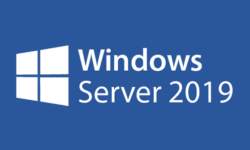Peer-to-Peer File-Sharing and Copyright Infringement: Are You Vulnerable?

Here’s some useful information posted by the University of Washington regarding peer-to-peer file-sharing issues.
1. Peer-to-Peer File-Sharing: What is the risk?
Every day, millions of computer users share files online. Whether it is music, games, or software, file-sharing can give people access to a wealth of information. You simply download special software that connects your computer to an informal network of other computers running the same software. Millions of users could be connected to each other through this software at one time. The software often is free and easily accessible.
Sounds promising, right? Maybe, but make sure that you consider the trade-offs. File-sharing can have a number of risks. For example, when you are connected to file-sharing programs, you may unknowingly allow others to copy private files you never intended to share. You may download material that is protected by the copyright laws and find yourself mired in legal issues. You may download a virus or facilitate a security breach.
For a more details on securing your personal information and additional information on file-sharing software and how to remove it, see file-sharing security and software programs.
2. What is the copyright issue?
Under copyright law, it is illegal to download or share copyrighted materials such as music or movies without the permission of the copyright owner. The record and movie industry in recent years has taken an aggressive approach to stopping illegal downloading and file sharing. This has put many students at the nation’s colleges and universities at some legal risk.
Your actions when downloading or sharing files are traceable and could result in a significant financial penalty to you.
3. What is the record and music industry doing about illegal downloads?
There are many initiatives that address illegal file sharing. For instance, the Recording Industry Association of America (RIAA) is now sending colleges and universities letters pointing to specific alleged instances of illegal file sharing and requesting the university to forward the letter to the person the university identifies as being associated with the activity. The letter, called a “Pre-Settlement Letter” notifies the student that he or she has a specified number of days to settle with the RIAA by going to a designated website, entering identifying information, and paying a set amount, usually between $3,000 and $5,000, but sometimes considerably more. The letter states that, if the recipient chooses not to settle, the RIAA will file a lawsuit and the offer to settle for the amount stipulated may no longer be an option.
Click here to read the rest of the article.


